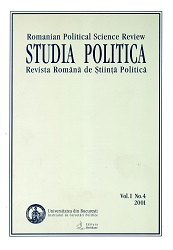Meaningful Citizenship A Study on Farmer-Labor Politics in Minnesota at the End of the 19th Century
Meaningful Citizenship A Study on Farmer-Labor Politics in Minnesota at the End of the 19th Century
Author(s): Jeffrey KolnickSubject(s): Politics / Political Sciences, Politics, History, Modern Age, Government/Political systems, 19th Century
Published by: Editura Universităţii din Bucureşti
Keywords: Citizenship; democracy; national politics; Farmer-Labor Politics; Minnesota;
Summary/Abstract: This study reveals the challenges of defining a meaningful citizenship for workers and farmers in an era of rapid industrialization. A democracy for more than 100 years in 1892, the United States continued to struggle with the meaning of citizen ship in profound ways. The legacy of slavery and civil war were still fresh, as was the aftermath of a savage policy of genocide against the indigenous peoples of North America. Immigrants from southern and eastern Europe challenged long established Protestant Americans to find room in their polity for peoples long considered inferior. And though granted the vote in a handful of western states, women remained largely excluded from the protections and privileges of citizenship. With the retreat from civil rights legislation during the Reconstruction already well underway by 1892, the meaning of citizenship was severely restricted to a minority of white men.
Journal: Studia Politica. Romanian Political Science Review
- Issue Year: 1/2001
- Issue No: 4
- Page Range: 981-1043
- Page Count: 63
- Language: English

